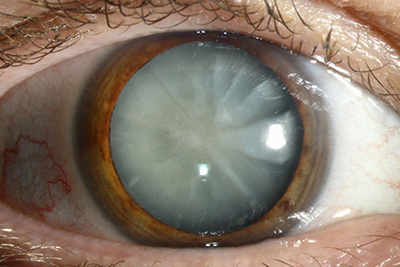
Breaking News
 What I Wish I Knew Before Keeping Chickens
What I Wish I Knew Before Keeping Chickens
 Michael Oliver Bombshell: Silver's "Rebirth" After Smackdown - $500 Silver by Summer,
Michael Oliver Bombshell: Silver's "Rebirth" After Smackdown - $500 Silver by Summer,
 Jeffrey Epstein's Account "littlestjeff1" Is Still Playing Fortnite Today in Israel
Jeffrey Epstein's Account "littlestjeff1" Is Still Playing Fortnite Today in Israel
 Don't Drink Plain Water Again After 60 - THIS #1 Trick Boosts Blood Flow Instantly | Senior Hea
Don't Drink Plain Water Again After 60 - THIS #1 Trick Boosts Blood Flow Instantly | Senior Hea
Top Tech News
 How underwater 3D printing could soon transform maritime construction
How underwater 3D printing could soon transform maritime construction
 Smart soldering iron packs a camera to show you what you're doing
Smart soldering iron packs a camera to show you what you're doing
 Look, no hands: Flying umbrella follows user through the rain
Look, no hands: Flying umbrella follows user through the rain
 Critical Linux Warning: 800,000 Devices Are EXPOSED
Critical Linux Warning: 800,000 Devices Are EXPOSED
 'Brave New World': IVF Company's Eugenics Tool Lets Couples Pick 'Best' Baby, Di
'Brave New World': IVF Company's Eugenics Tool Lets Couples Pick 'Best' Baby, Di
 The smartphone just fired a warning shot at the camera industry.
The smartphone just fired a warning shot at the camera industry.
 A revolutionary breakthrough in dental science is changing how we fight tooth decay
A revolutionary breakthrough in dental science is changing how we fight tooth decay
 Docan Energy "Panda": 32kWh for $2,530!
Docan Energy "Panda": 32kWh for $2,530!
 Rugged phone with multi-day battery life doubles as a 1080p projector
Rugged phone with multi-day battery life doubles as a 1080p projector
 4 Sisters Invent Electric Tractor with Mom and Dad and it's Selling in 5 Countries
4 Sisters Invent Electric Tractor with Mom and Dad and it's Selling in 5 Countries
Link Between Cataracts and Vascular Dementia Found -- Study

A recent study that analyzed biobank participants (those who submitted various bodily samples to medical research databases) indicates that those with cataracts often had lower brain matter volume and a higher risk of dementia, particularly vascular dementia (the type stemming from low blood flow to the brain).
"In this cohort study of 304,953 UK Biobank participants, cataracts were associated with lower total gray matter volume, white matter hyperintensities, and increased risk of dementia, especially vascular dementia," the study said in the 'Findings' section of the 'Key Points'. "Mendelian randomization analyses estimated that cataracts were associated with a 92% increase in the odds of vascular dementia risk; although poor visual acuity was associated with an increased risk of dementia, myopia was not associated with dementia in genetic analyses."
Since the eyes are part of the neurological system with the optic nerve connecting into the brain, a link between neurodegenerative disease and ocular degeneration may not sound so far out.
Alzheimers, a type of dementia, is also associated with vision disorders.
"Vision and eye conditions are associated with increased risk for Alzheimer disease and related dementias (ADRDs), but the nature of the association and the underlying biological pathways remain unclear. If causal, vision would be an important modifiable risk factor with viable population-level interventions," the study said in the 'Importance' section of the 'Abstract'.
Another study indicates similar findings.
"Cataracts are associated with the risk of cognitive impairment and dementia, including Alzheimer's disease, and vascular dementia," that study said in the 'Conclusions' section.
A third study shows similar results, although the results indicate that the cataracts may be an associated factor but not a causal one.
"The findings suggest that cataract may be associated with cognitive impairment in older adults. However, the causal relationship between cataract and cognition remains unclear and requires further investigation," that study said in the 'Conclusions' section.
A different study however may indicate a causal link, as removing the cataracts also appears to aid in diminishing dementia risk.
"In this cohort study assessing 3038 adults 65 years of age or older with cataract enrolled in the Adult Changes in Thought study, participants who underwent cataract extraction had lower risk of developing dementia than those who did not have cataract surgery after controlling for numerous additional risks. In comparison, risk of dementia did not differ between participants who did or did not undergo glaucoma surgery, which does not restore vision," the study said in the 'Findings' section of the 'Key Points'.



